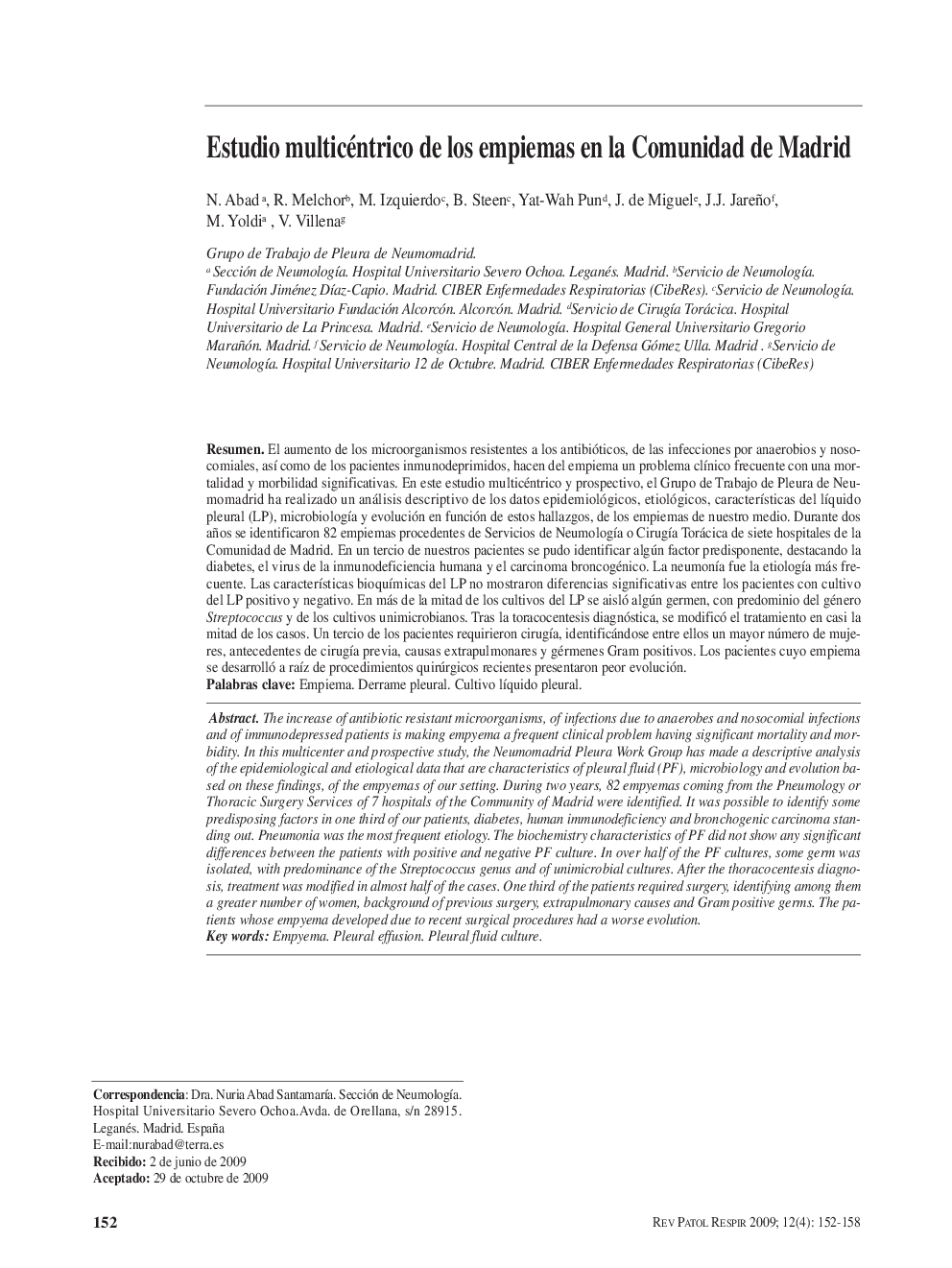| Article ID | Journal | Published Year | Pages | File Type |
|---|---|---|---|---|
| 2686056 | Revista de Patología Respiratoria | 2009 | 7 Pages |
Abstract
The increase of antibiotic resistant microorganisms, of infections due to anaerobes and nosocomial infections and of immunodepressed patients is making empyema a frequent clinical problem having significant mortality and morbidity. In this multicenter and prospective study, the Neumomadrid Pleura Work Group has made a descriptive analysis of the epidemiological and etiological data that are characteristics of pleural fluid (PF), microbiology and evolution based on these findings, of the empyemas of our setting. During two years, 82 empyemas coming from the Pneumology or Thoracic Surgery Services of 7 hospitals of the Community of Madrid were identified. It was possible to identify some predisposing factors in one third of our patients, diabetes, human immunodeficiency and bronchogenic carcinoma standing out. Pneumonia was the most frequent etiology. The biochemistry characteristics of PF did not show any significant differences between the patients with positive and negative PF culture. In over half of the PF cultures, some germ was isolated, with predominance of the Streptococcus genus and of unimicrobial cultures. After the thoracocentesis diagnosis, treatment was modified in almost half of the cases. One third of the patients required surgery, identifying among them a greater number of women, background of previous surgery, extrapulmonary causes and Gram positive germs. The patients whose empyema developed due to recent surgical procedures had a worse evolution.
Related Topics
Health Sciences
Medicine and Dentistry
Pulmonary and Respiratory Medicine
Authors
N. Abad, R. Melchor, M. Izquierdo, B. Steen, Yat-Wah Pun, J. de Miguel, J.J. Jareño, M. Yoldi, V. Villena,
